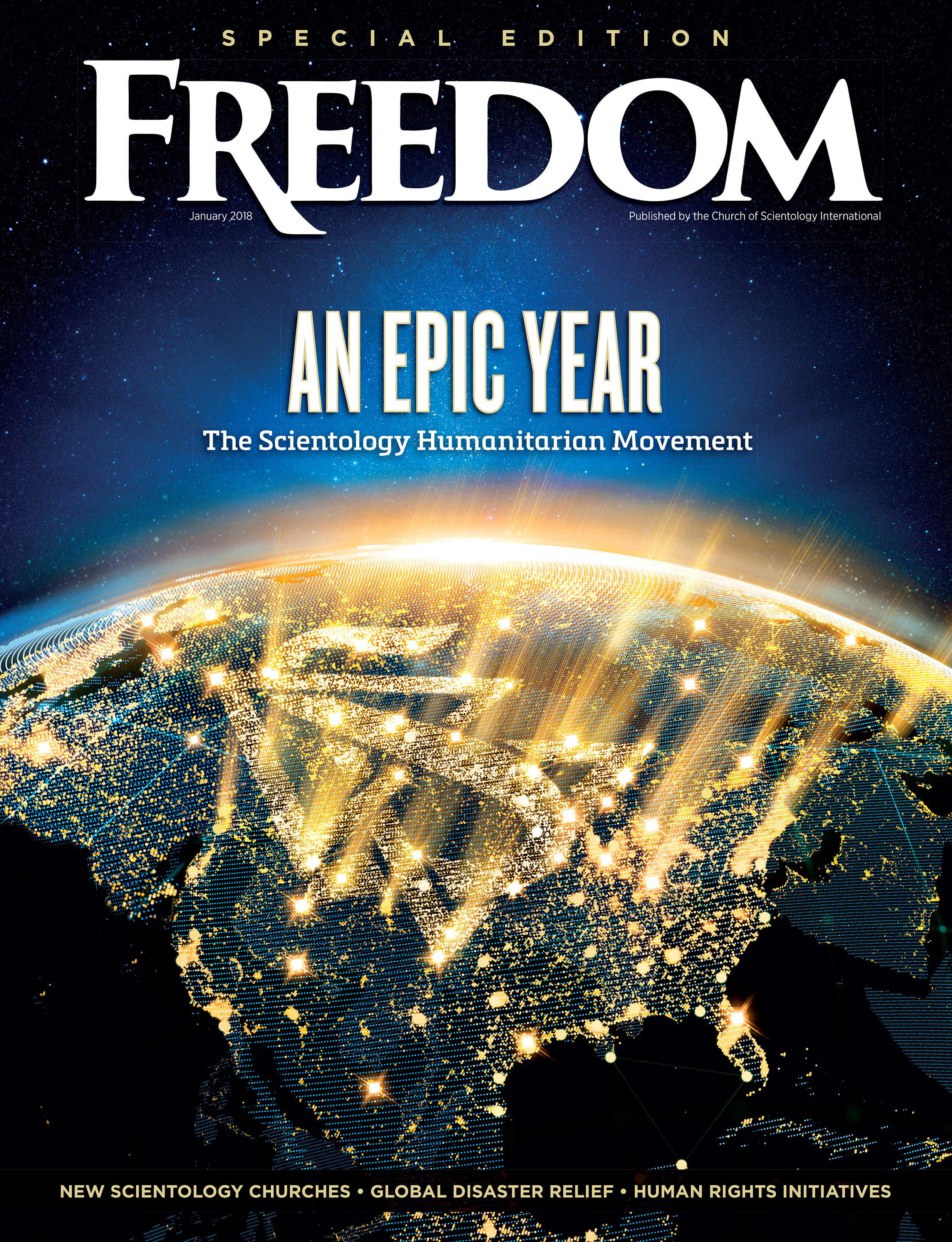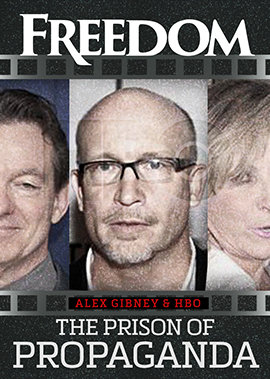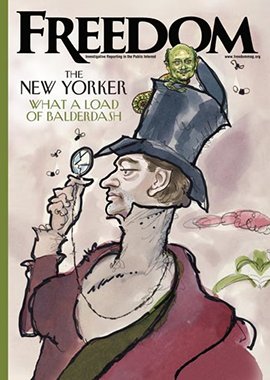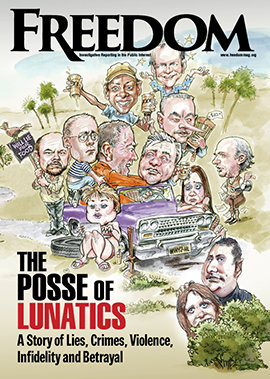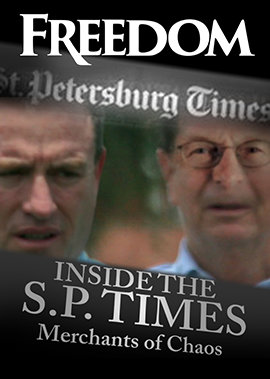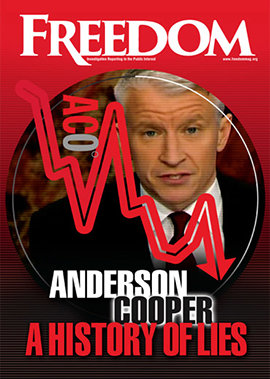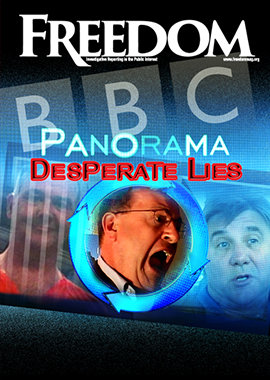Croxford’s lengthy piece gives the background on her work that culminated in the October 22, 2024, arrest of Mike Jeffries, one-time CEO of fashion giant Abercrombie & Fitch, along with two others—all charged with sex trafficking and interstate prostitution.
“When I think back to how my own investigation began, in January 2021, I never imagined it would lead to this moment,” Croxford wrote. “During the pandemic, I was researching the fashion industry when I stumbled across a cryptic Instagram comment written by a former model named Barrett Pall.
“He was part of a group discussing how they felt abuse against male models was being ignored. ‘We’ve seen it happen with #MeToo, how about #UsToo?’ one wrote. We soon got on the phone. After an hour of talking, he said he felt he could trust with me a secret he’d never really shared before.
“‘It’s probably like the darkest experience I’ve ever dealt with,’ he told me,” Croxford revealed, detailing how that first telephone conversation set her on the path of what became front-page news.
You don’t have to be a scholar to know the sad reputation now tainting the fourth estate.
The dirty little secret—which is unfortunately not a secret at all—is how Croxford’s very job of reporting has become so rare that the BBC feels proud enough to extoll her workmanship with a first-person account of the story behind the story detailing how she did the job all reporters once took as the very bottom line of the profession: find a lead and follow the facts wherever they may go.
Isn’t that Journalism 101? It was when I attended J School at the University of Florida years ago. Not only were we charged with digging for facts, regardless of where it may lead, but we were obliged to present both sides of every story as well.

Shockingly, that very cornerstone of journalism has been replaced by a corporate culture that favors one side over the other—image over reality, doctrine over truth. The lack of real reporting has become so ingrained throughout media that “the end justifying the means” could stand as the mission statement of the majority of legacy media. Whether this pack mentality is focused on politics or religion, the economy or immigration, a bias is present; a corporate agenda always trumps actual reporting.
Now, one outlet “reports” something. Another outlet picks up the story as a “lead” and pushes the narrative. Still another reports on the same issue and kicks the report further into the mass consciousness of an unsuspecting public, unaware or unconcerned that the entire premise may well be the kind of classic propaganda outlined in a quote attributed to Joseph Goebbels: “If you tell a lie big enough and keep repeating it, people will eventually come to believe it.”
You don’t have to be a scholar to know the sad reputation now tainting the fourth estate. Jeff Bezos, Amazon founder and owner of The Washington Post, openly admits to the current deplorable reputation of the profession, which he detailed in an October 28 editorial in his own paper under the headline “The hard truth: Americans don’t trust the news media.”
“In the annual public surveys about trust and reputation, journalists and the media have regularly fallen near the very bottom, often just above Congress,” Bezos wrote. “But in this year’s Gallup poll, we have managed to fall below Congress. Our profession is now the least trusted of all. Something we are doing is clearly not working.”
What isn’t working are real journalists. Reporters finding a compelling lead and sticking to it long enough to uncover “news,” without consideration of which side of the political aisle the information may ultimately enhance or tarnish. Real reporters are no longer employed by what is euphemistically called the Mainstream Press.
The lack of public trust in journalism is appalling to many of us in the profession.
An internet search reveals a startling fact: Four companies control nearly all of the news aimed at Americans.
- The Walt Disney Company: Owns various media outlets, including Disney Channels, A&E Networks, Freeform, FX Networks, National Geographic Global Networks, ABC Audio, Disney Music Group, Marvel New Media and Radio Disney Networks.
- Comcast: Owns NBCUniversal, Sky, Back Lot Music, Fandango and has a stake in Hulu.
- Warner Bros. Discovery: Owns TBS, TNT, TruTV, Cartoon Network, Adult Swim, HBO, Discovery Channel, Animal Planet, Food Network, HGTV, TLC, Discovery Family, Warner Bros. Discovery International, WaterTower Music and Williams Street Records.
- Paramount Global: Owns Paramount Media Networks, Paramount International Networks, BET Media Group, Paramount Music and has a stake in MTV.
What these corporations have done is blurred the lines of independent, objective reporting. Real reporting has been replaced by an echo chamber that has lost touch with the bedrock of journalism. Even Bezos admits the legacy press has lost all relevance for most of the country.
“The Washington Post and The New York Times win prizes, but increasingly we talk only to a certain elite,” Bezos wrote. “More and more, we talk to ourselves.”

The lack of public trust in journalism is appalling to many of us in the profession. It stings to be tainted by the broad brushstrokes of bias so well deserved by the majority of those calling themselves journalists. It was a profession I and many of my colleagues once took great pride in practicing. At that time, it was truly a calling many of us heard. Once we were watchdogs of society. Today? Lapdogs.
“A free press is one where it’s ok to state the conclusion you’re led to by the evidence,” journalist Bill Moyers once said.
Follow the evidence. State the conclusion.
Rianna Croxford should be proud of her work. Rightfully so. She found a lead and followed the trail.
But it shouldn’t be so unusual as to be worthy of a spread on the BBC’s website. Journalism has fallen so far it may never recover. But the good news is independent websites are breaking the monopoly held so long by legacy media. That is the story the BBC should be posting.
The profession is needed and may well be vital for a free and functioning republic. Consider the words of Thomas Jefferson, who noted: “The basis of our governments being the opinion of the people, the very first object should be to keep that right; and were it left to me to decide whether we should have a government without newspapers or newspapers without a government, I should not hesitate a moment to prefer the latter.”








